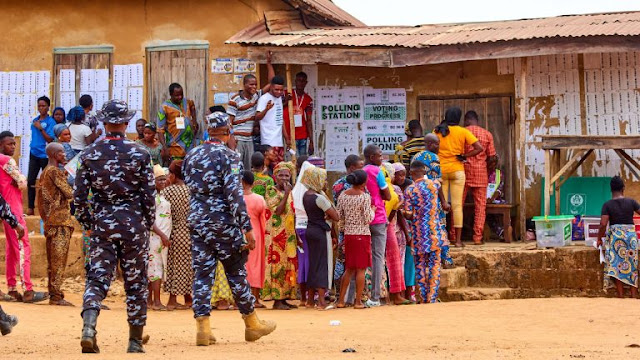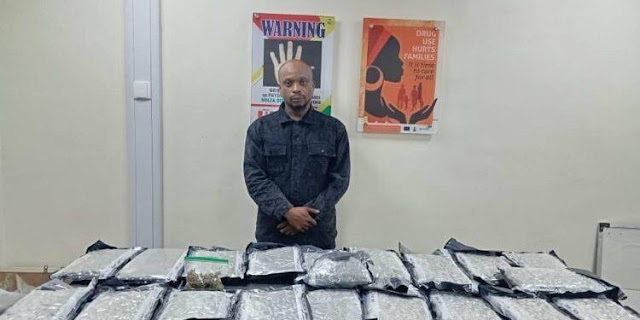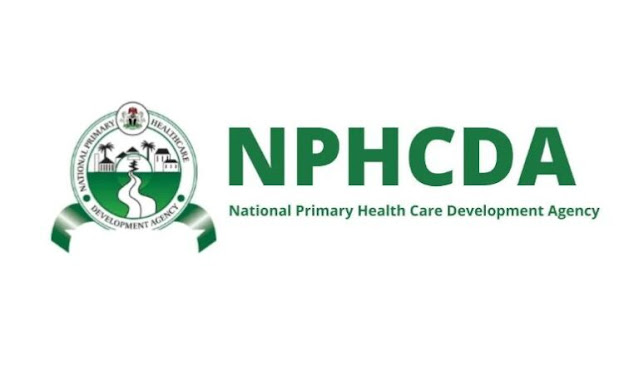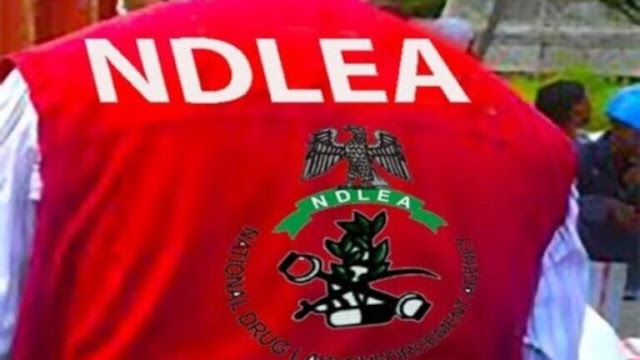As Nigeria approaches its 2027 general elections, growing concerns about the credibility of the electoral process have taken center stage, fueled by a leaked document that allegedly exposes a plot to manipulate the Independent National Electoral Commission (INEC). The document, which has sparked widespread alarm among political analysts, civil society organizations, and the general public, reportedly outlines a scheme to undermine the transparency and fairness of the upcoming polls. This revelation has reignited debates about the fragility of Nigeria’s democratic institutions and the challenges of ensuring free and fair elections in a country with a history of electoral controversies.
The Leaked Document: A Blueprint for Manipulation?
The leaked document, which surfaced in early September 2025, has been described by sources as a detailed plan to influence the outcome of the 2027 elections through strategic interference in INEC’s operations. According to reports, the document contains instructions for manipulating voter registration processes, altering electoral guidelines, and compromising the technological infrastructure that underpins Nigeria’s electoral system. While the authenticity of the document has not been officially confirmed, its contents have raised serious questions about the independence and impartiality of INEC, the body tasked with overseeing elections in Africa’s most populous nation.
The document reportedly outlines several tactics allegedly designed to favor a particular political party or candidate. These include the deliberate disenfranchisement of voters in certain regions, the manipulation of voter accreditation systems, and the deployment of biased electoral officials to key positions. Additionally, there are claims that the plot involves undermining the Bimodal Voter Accreditation System (BVAS), a technology introduced to enhance the credibility of elections by ensuring accurate voter verification and result transmission. The BVAS, which was widely praised during the 2023 elections despite some challenges, is seen as a cornerstone of Nigeria’s efforts to modernize its electoral process.
The leak has sparked outrage among opposition parties, civil society groups, and ordinary Nigerians, who fear that such a plot could erode public trust in the democratic process. Many are drawing parallels to past elections marred by allegations of rigging, voter suppression, and institutional bias. The 2023 general elections, for instance, were heavily criticized for logistical failures, delays in result transmission, and instances of violence at polling stations. The emergence of this alleged plot threatens to deepen skepticism about INEC’s ability to deliver credible elections in 2027.
INEC’s Response: Denial or Damage Control?
In response to the allegations, INEC has issued a statement dismissing the leaked document as a fabrication intended to discredit the commission and sow discord among Nigerians. The electoral body emphasized its commitment to conducting free, fair, and transparent elections, citing ongoing reforms to strengthen its processes. INEC’s spokesperson, Rotimi Oyekanmi, described the document as “a malicious attempt by detractors to undermine the commission’s integrity” and urged Nigerians to disregard the allegations.
However, the commission’s response has done little to quell public anxiety. Critics argue that INEC’s track record raises legitimate concerns about its ability to resist external pressures. Over the years, the commission has faced accusations of being influenced by powerful political actors, particularly during high-stakes elections. The 2019 elections, for example, were criticized for widespread irregularities, including the controversial postponement of the presidential election just hours before polls were set to open. Similarly, the 2023 elections saw significant public outcry over discrepancies in result collation and transmission, with some opposition parties alleging that INEC colluded with the ruling party to manipulate outcomes.
The current allegations have placed INEC under intense scrutiny, with calls for an independent investigation into the leaked document. Civil society organizations, such as the Transition Monitoring Group (TMG) and the Electoral Integrity Network, have urged the commission to provide greater transparency about its preparations for the 2027 elections. Some have even called for international oversight to ensure that the electoral process is not compromised.
Historical Context: Nigeria’s Troubled Electoral Past
To fully understand the gravity of the current controversy, it is essential to examine Nigeria’s history of electoral challenges. Since the return to civilian rule in 1999, the country has held seven general elections, each accompanied by varying degrees of controversy. From ballot box snatching to voter intimidation, electoral malpractices have been a recurring feature of Nigeria’s democratic journey. The 2003 and 2007 elections, in particular, were widely condemned by both domestic and international observers as falling short of democratic standards.
The introduction of technological innovations, such as the Permanent Voter Card (PVC) and the BVAS, was intended to address some of these issues. The 2015 elections, which saw the historic defeat of an incumbent president, were hailed as a turning point for Nigeria’s democracy, largely due to the use of card readers to authenticate voters. However, subsequent elections have exposed the limitations of these technologies, with logistical failures and allegations of manipulation undermining their effectiveness.
The 2023 elections, in particular, highlighted the fragility of Nigeria’s electoral system. Despite high expectations for a transparent process, the elections were marred by delays in uploading results to INEC’s Result Viewing Portal (IReV), leading to accusations of deliberate sabotage. Opposition candidates, including Atiku Abubakar of the Peoples Democratic Party (PDP) and Peter Obi of the Labour Party, challenged the results in court, citing widespread irregularities. Although the Supreme Court ultimately upheld the victory of President Bola Tinubu, the controversies surrounding the election left a lingering sense of distrust in INEC’s ability to deliver credible polls.
The leaked document, if authentic, represents a new low in Nigeria’s electoral history. It suggests a coordinated effort to exploit vulnerabilities in the system, potentially undermining the will of millions of Nigerian voters. The allegations have also raised questions about the role of political actors in influencing INEC’s operations, with some speculating that powerful interests within and outside the government may be involved.
Political Implications: A Fractured Democracy
The allegations of a manipulation plot come at a time when Nigeria’s political landscape is already deeply polarized. The 2023 elections exposed significant regional and ethnic divisions, with candidates drawing support from distinct geopolitical zones. The emergence of Peter Obi as a formidable contender, particularly among younger voters, signaled a shift in Nigeria’s political dynamics, with many Nigerians demanding greater accountability and transparency from their leaders.
The leaked document threatens to exacerbate these divisions, as opposition parties and their supporters view it as evidence of a concerted effort to maintain the status quo. The PDP and Labour Party have both issued statements condemning the alleged plot and calling for reforms to strengthen INEC’s independence. Atiku Abubakar, in a recent press conference, described the leak as “a wake-up call for all Nigerians who value democracy,” urging citizens to demand accountability from INEC and the government.
The ruling All Progressives Congress (APC), however, has dismissed the allegations as a ploy by opposition parties to discredit the government ahead of the 2027 elections. APC spokesperson, Felix Morka, accused opposition leaders of “spreading falsehoods to incite unrest” and called on Nigerians to focus on the government’s achievements rather than “baseless conspiracy theories.”
The controversy has also drawn attention to the role of political financing in Nigeria’s elections. Analysts have long argued that the high cost of campaigning creates an uneven playing field, allowing wealthy candidates and parties to exert undue influence over the electoral process. The alleged manipulation plot, if true, could be linked to efforts by powerful political actors to secure their interests through illicit means, further undermining the democratic process.
Technological Vulnerabilities: The BVAS Under Threat
One of the most alarming aspects of the leaked document is its focus on undermining the BVAS, a technology that has been central to Nigeria’s efforts to modernize its elections. The BVAS, which combines fingerprint and facial recognition to verify voters, was introduced to reduce incidents of multiple voting and other forms of electoral fraud. During the 2023 elections, the system was credited with improving the accreditation process, although challenges with result transmission raised questions about its reliability.
The leaked document allegedly outlines plans to compromise the BVAS through software manipulation and the deployment of faulty devices in opposition strongholds. Such tactics, if implemented, could disenfranchise millions of voters and skew election results. The document also reportedly calls for the recruitment of sympathetic INEC officials to oversee the implementation of these plans, raising concerns about the commission’s internal integrity.
Cybersecurity experts have warned that Nigeria’s electoral technology is vulnerable to hacking and manipulation, particularly in the absence of robust safeguards. The 2023 elections exposed weaknesses in INEC’s digital infrastructure, with reports of unauthorized access to the IReV portal and discrepancies in uploaded results. The alleged plot to target the BVAS underscores the need for INEC to invest in stronger cybersecurity measures and conduct regular audits of its systems.
Civil Society and International Response
The allegations have prompted a strong reaction from civil society organizations, which have called for urgent action to protect Nigeria’s democracy. Groups like Yiaga Africa and the Situation Room have urged INEC to address the concerns raised by the leaked document and provide assurances about the integrity of the 2027 elections. They have also called for greater civic engagement to ensure that citizens are vigilant and hold the commission accountable.
Internationally, the leak has attracted the attention of organizations such as the United Nations, the African Union, and the Economic Community of West African States (ECOWAS). These bodies have previously expressed concerns about electoral integrity in Nigeria and other African countries, emphasizing the importance of transparent and credible elections for regional stability. The United States and the European Union, which have supported Nigeria’s electoral reforms through funding and technical assistance, are also likely to closely monitor developments related to the leaked document.
The international community’s response will be critical in shaping Nigeria’s electoral landscape in the lead-up to 2027. Pressure from foreign governments and organizations could compel INEC to implement reforms and address vulnerabilities in its processes. However, there are concerns that excessive external involvement could be perceived as interference, further complicating Nigeria’s already delicate political situation.
The Role of the Media and Public Awareness
The media has played a crucial role in amplifying the allegations surrounding the leaked document, with outlets across Nigeria publishing detailed analyses of its contents. Social media platforms, particularly X, have also been abuzz with discussions about the controversy, with hashtags such as #ProtectOurVote and #INECPlot trending in recent weeks. The widespread dissemination of the allegations has heightened public awareness and sparked calls for greater transparency in the electoral process.
However, the media’s role has not been without controversy. Some analysts have accused certain outlets of sensationalizing the story to advance political agendas, while others have raised concerns about the spread of misinformation. The lack of official confirmation regarding the document’s authenticity has fueled speculation, with some Nigerians questioning whether the leak is a genuine exposé or a fabricated attempt to destabilize the political landscape.
Public awareness campaigns will be essential in ensuring that Nigerians are informed about their rights and responsibilities as voters. Civil society organizations have already begun mobilizing citizens to monitor INEC’s activities and report any suspicious behavior. Grassroots movements, particularly among Nigeria’s youth, are likely to play a significant role in holding the commission accountable and advocating for electoral reforms.
Potential Consequences for Nigeria’s Democracy
If the allegations in the leaked document are substantiated, the consequences for Nigeria’s democracy could be profound. A loss of public trust in INEC and the electoral process could lead to widespread apathy among voters, reducing turnout and undermining the legitimacy of the 2027 elections. In a worst-case scenario, allegations of manipulation could trigger protests and violence, as seen in previous elections.
The controversy also has implications for Nigeria’s international reputation. As a leading democracy in Africa, Nigeria’s ability to conduct credible elections is closely watched by other countries in the region. A failure to address the current allegations could embolden authoritarian tendencies in other nations, weakening the continent’s democratic progress.
On the other hand, the leak presents an opportunity for Nigeria to strengthen its electoral system. By addressing the vulnerabilities exposed by the document, INEC could implement reforms to enhance transparency, improve technological infrastructure, and ensure greater accountability. Such measures could restore public confidence and set a precedent for future elections.
The Way Forward: Safeguarding Nigeria’s Electoral Future
To mitigate the risks posed by the alleged manipulation plot, several steps must be taken. First, INEC must conduct a thorough investigation into the leaked document and provide a transparent account of its findings. If the document is found to be authentic, those responsible for the plot must be held accountable, regardless of their political affiliations.
Second, INEC should prioritize strengthening its technological infrastructure, particularly the BVAS and IReV systems. This includes investing in cybersecurity measures, conducting regular audits, and training electoral officials to detect and prevent manipulation attempts. Collaboration with international partners, such as the International Foundation for Electoral Systems (IFES), could provide valuable expertise in this area.
Third, the government must ensure that INEC remains independent and free from political interference. This includes appointing credible and impartial individuals to key positions within the commission and providing adequate funding to support its operations. Legislative reforms to strengthen INEC’s autonomy could also help insulate the commission from external pressures.
Finally, civil society and the media must continue to play a watchdog role, monitoring INEC’s activities and mobilizing public support for electoral integrity. Grassroots campaigns, voter education programs, and independent election observation efforts will be critical in ensuring that the 2027 elections reflect the true will of the Nigerian people.
Conclusion: A Critical Test for Nigeria’s Democracy
The allegations of a plot to manipulate Nigeria’s 2027 elections have cast a dark shadow over the country’s democratic prospects. As fears mount over the integrity of the electoral process, the onus is on INEC, the government, and civil society to address these concerns and restore public trust. The leaked document, whether authentic or not, serves as a stark reminder of the challenges facing Nigeria’s democracy and the urgent need for reforms to safeguard the electoral system.
With less than two years until the 2027 elections, Nigeria stands at a crossroads. The actions taken in response to this controversy will determine whether the country can overcome its history of electoral malpractices and deliver a process that is truly free, fair, and credible. For millions of Nigerians yearning for a government that represents their aspirations, the stakes could not be higher.






